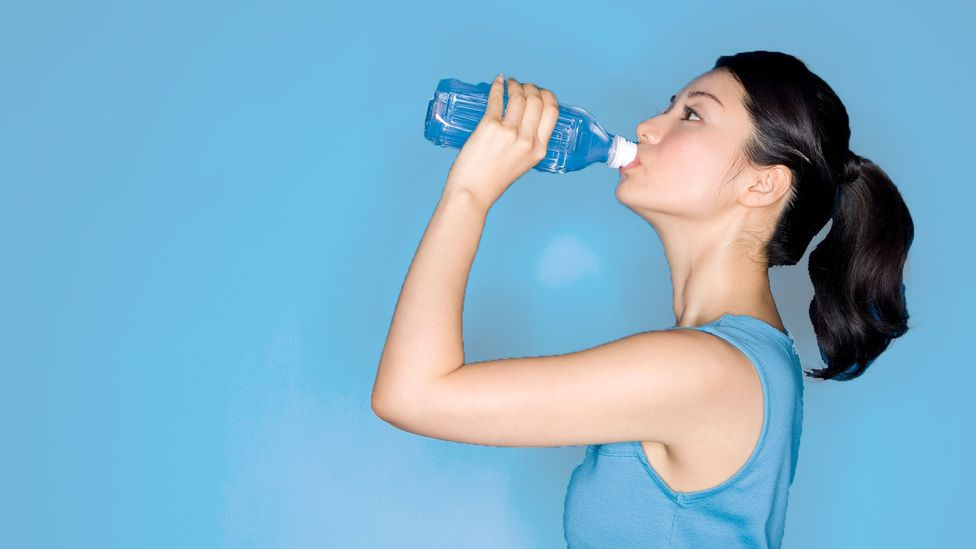Water, often dubbed the elixir of life, plays a monumental role in our daily existence. From keeping us hydrated to aiding bodily functions, its importance simply cannot be stressed enough. Yet, a baffling question lingers in many minds: how much should one drink water every day?
Perhaps you've heard the age-old adage: "Drink eight glasses a day." Others might have told you to guzzle down a gallon or more. But, as with most things, one size doesn't fit all. Let's embark on a journey to decode this hydration conundrum.
What Science Says
The Institute of Medicine, after extensive studies, suggests that an average, healthy adult living in temperate climates should consume about 2.7 liters (or about 91 ounces) for women and 3.7 liters (or about 125 ounces) for men. This includes all beverages and water-rich foods consumed.
However, this is a blanket recommendation. Factors like your body type, activity level, and environmental conditions can influence your specific needs. Therefore, it's crucial to tailor these general guidelines to your unique situation.
Listen to Your Body
One of the most intuitive signals your body provides is thirst. By the time you're thirsty, you're already slightly dehydrated. So, it's paramount to heed this natural alert system. Moreover, if your urine is light and clear, it's a good indicator that you're well-hydrated. On the contrary, dark yellow or amber-colored urine is a sign that you need to up your water intake.
Exercise and Hydration
Unquestionably, those who engage in frequent physical activity or strenuous jobs need more water. Sweating causes our bodies to lose fluids, and thus, it's imperative to replace them. As a rule of thumb, you should drink about 500ml of water 30 minutes before starting your workout and continue to sip during the session.
Climatic Influence
Living in a hot or dry climate naturally accelerates fluid loss through sweating. Conversely, even cold environments can have a dehydrating effect, as our bodies work harder to maintain core temperature. In these conditions, it's wise to increase your daily water consumption.
Dietary Considerations
Certain diets, like high-protein or high-salt ones, can increase your need for water. Likewise, consuming caffeinated or alcoholic beverages can have a diuretic effect, leading to more frequent urination. Thus, balance is the key.
Pregnancy and Breastfeeding
Women who are pregnant or breastfeeding have elevated hydration needs. The body uses more fluids to maintain amniotic fluid levels during pregnancy. When breastfeeding, the body uses water to produce milk. Therefore, it's recommended for women in these phases to consult their healthcare providers regarding optimal hydration.
Medical Conditions and Medication
Some medical conditions, like kidney stones or urinary tract infections, demand increased water consumption. Moreover, specific medications can cause dehydration as a side effect. Always consult with your doctor if you believe your condition or medicine impacts your hydration needs.
Debunking the Myth
So, when considering how much water to drink, it's essential to remember that the '8x8' rule - eight 8-ounce glasses a day - is an easy-to-remember guideline, but not a one-size-fits-all solution. Your daily needs can vary based on multiple factors.
A Word of Caution: Overhydration
Yes, there's something like drinking too much water. Known as water intoxication or hyponatremia, it's a condition where the amount of salt and other electrolytes in your body become dangerously imbalanced due to excessive water intake. This can lead to life-threatening situations. Always aim for balance.
Wrapping it Up
In conclusion, determining the exact amount of water to drink daily requires a keen understanding of one's body and environmental factors. It's always beneficial to start with general guidelines and adjust based on personal experiences.
Remember, while water is essential, it's only one piece of the holistic health puzzle. Incorporating a balanced diet and regular exercise regimen completes the picture. Lastly, keep an eye out for technological advancements; soon, you might find smart gadgets guiding you on your hydration journey.
resources:
Institute of Medicine's Dietary Reference Intakes for Water
National Hydration Council's Guidelines on Fluid Intake


No comments yet